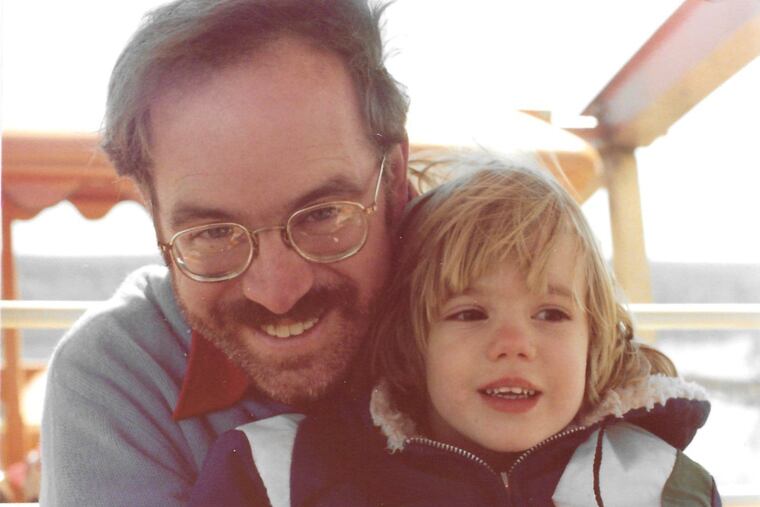The hope brought by the COVID vaccine is bittersweet for those of us already grieving | Opinion
Had my father lived through the end of the year, he might have received the first batch of the vaccine.

The morning the first Americans received a vaccine against COVID-19, I attended Philadelphia probate court where, over Zoom, I signed a document granting me the authority to distribute my father’s assets.
My dad was one of the hundreds of thousands of Americans who died this year. While many people around me are allowing slivers of hope to enter their hearts — maybe in a few months they can travel, visit friends, go to a concert? — I’m trying to figure out who gets to keep dad’s favorite hat. It still smells like him.
The vaccine is an enormous feat of human innovation and hard work, and will save so many lives — all things worth celebrating. But for grieving families, its arrival is bittersweet.
» READ MORE: COVID stole my dad’s final months. The worsening pandemic will rip more families apart. | Opinion
We have now lost more than 300,000 Americans to COVID-19. Each one left behind an estimated nine family members, not to mention countless nonrelative loved ones. That’s millions of people who will eventually be offered a shot they wish could have saved someone else.
In 2020, there have also been tens of thousands of more deaths than expected (based on previous years) from other causes, such as diabetes and heart disease. One of those data points is my dad, who died in September of dementia, not COVID-19. But because of the virus, he, like so many others, spent his final months alone, cut off from his family and friends. As a nursing home resident, had he lived through the end of the year, he might have received the first batch of the vaccine, and I might have been able to see him before the last hours of his life.
As relieved as I am to know the vaccine is here, and that other families may not have to go through what we did, it will be a little painful knowing his neighbors may be able to leave their rooms and hug their families. If only my father had made it a few more months, that could have been us.
Living with grief is like wearing a weighted blanket that you can never take off. I answer emails, make sure my kid logs onto virtual school every morning, cook dinner, but everything requires more effort. My limbs feel heavy; I tire easily. Grief weaves its way into every other aspect of your life: The smells and sounds of the holiday season are muted by memories of someone you wish were there. How can it be that a person who once loomed so large in your life — a parent, sister, spouse — could just disappear forever? How can it be that one day, that will happen to me, and everyone I love? The thought is so big I can hardly bear it.
» READ MORE: As we grieve what’s been lost to coronavirus, 12 experts share ways we can cope together | Perspective
Dementia is a slow death. The dad I knew has been long gone, and a lot of my mourning has already happened. My mother’s death 13 years ago was different, and the wave of grief almost drowned me. I spent months in a daze, wandering the streets of Old City, where I worked, and South Philly, where I lived, trying to process it all. I watched people laugh at something funny or smile at a child and felt so different from them, like they were another species. My mother disappeared: How can they act like nothing happened?
This time, I’m not alone. In Pennsylvania, more than 13,000 people, including over 2,000 Philadelphians, have died of COVID-19. That’s roughly 117,000 family members going through the holidays in a daze, trying to make sense of something that makes no sense, doing their best to put on a good face for the people around them. And there’s people like me, who are mourning both the person and the time together stolen by COVID-19. We’ll keep cooking dinner and logging on at work, and we’ll try to find some way to safely usher in the New Year. And later on, we’ll get the vaccine, even though it might hurt — in more ways than one.
Alison McCook is a journalist based in Wyncote and a commentary editor at Knowable Magazine, a science publication for a general audience.